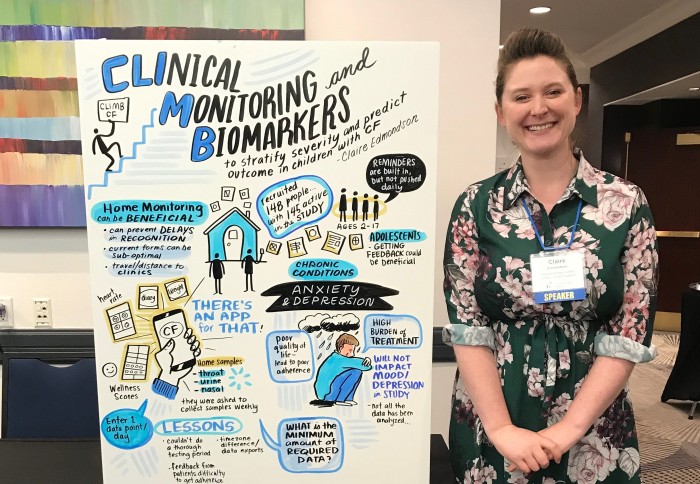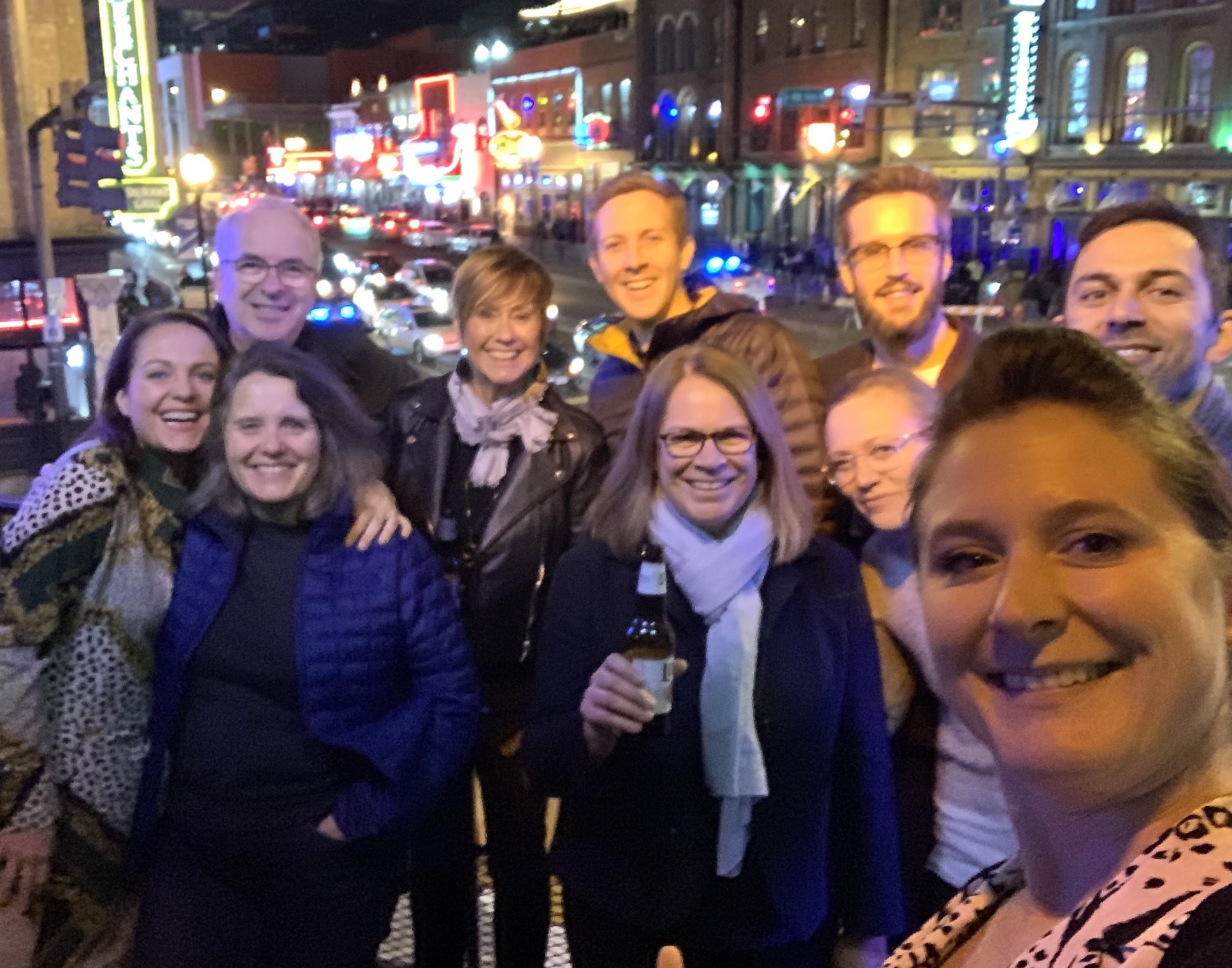NHLI PhD student takes home first prize

Dr Claire Edmondson was recently awarded the prize for best abstract for her clinical research in Cystic Fibrosis.
We are delighted to announce that Dr Claire Edmondson, a postgraduate research student at the National Heart and Lung Institute (NHLI), recently won the North American Cystic Fibrosis Conference (NACFC) Junior Investigator's Best Abstract in clinical research award competition. The NACFC brings together Cystic Fibrosis professionals to share ideas and research to support the goal of treating and curing Cystic Fibrosis in patients.
Claire’s abstract, 'Monitoring lung function of young people with CF at home: is it reliable? Results from the CLIMB-CF study', was one of the five entries short-listed, ultimately taking home first prize for Junior Investigators Best Abstract in clinical research. Cystic Fibrosis is a genetic condition that effects more than 10,000 people in the UK, causing a sticky mucus to build up in their lungs, digestive system and other organs. We spoke to Claire to find out more about her research, and her career to date.
Could you tell us about your PhD?
I took a break from medicine and started my PhD four years ago. My PhD explores the feasibility of remote monitoring of young people with Cystic Fibrosis using a mobile phone app and some Bluetooth technology, the study was called CLIMB-CF. Participants were given a study mobile phone app and some Bluetooth equipment. They were asked to complete measures either daily or twice a week. I looked at the feasibility of this home monitoring and the effect on quality of life as well as the quality of the data.
What is your research group like?
My PhD is based in Professor Jane Davies' lab. The lab is a mix of basic scientists, medics, research physiologists and a clinical trials team which means there are lots of varied and interesting research shared at every lab meeting, and it usually prompts lots of interesting discussions. It is also a very social group so was a brilliant place to work as I have always enjoyed being part of a team. I was also lucky enough to be supported by two other supervisors, Professor Andy Bush and Professor Eric Alton, who provided further support and insights.
What’s your academic background?
I am a paediatric doctor, now specialising in respiratory medicine. I completed my medical degree at the University of Manchester and then moved to London for my medical training. At the start of my paediatric training I had a ST2 placement with the respiratory department at the Royal Brompton Hospital. I fell in love with paediatric respiratory medicine and started to explore the ability of carrying out further research. After that I applied for a PhD in Jane's lab. My PhD was funded by the Cystic Fibrosis Trust and Cystic Fibrosis Canada. I was also lucky enough to receive some funding from the NIHR Rare Diseases Translational Research Collaboration.
What was the application process for the NACFC Junior Investigator award?
I submitted two abstracts from my PhD to the NACFC 2020. If you met the criteria as a junior investigator or early career researcher, you could apply to one of the Junior Investigator awards. Every year there are two awards, one for clinical research and one for basic science. All abstracts were reviewed by the Junior Investigator Judging Panel and people were shortlisted for the semi-final. I had submitted my work to the Clinical Research Junior Investigator Award.
This year they adapted the semi-final and are running a virtual conference. Prior to the conference I had three separate zoom judging sessions, during which I could share my poster over zoom, give a brief presentation and then answer questions from the judging panels. I was then informed by email that I had been selected for the final and that I would get details on the format of the final the day before the competition.

How did the day go?
The day before the final all five finalists were informed we would have five minutes to present our work virtually, with no written notes, only one hand-drawn slide. We were then asked questions by the judges and the audience for five minutes. The judges then went into a virtual breakout room to deliberate and came back and informed us and the audience of the result. It felt like a very long deliberation period!
How have you been finding working on your PhD with COVID-19 restrictions in place?
As a medic, we go back to clinical work during our fourth year of our PhD and write up in parallel to that, and to be honest with the additional clinical requirements due to the COVID-19 pandemic I have struggled to think about or write up my PhD. But I think that is okay. This is a completely unprecedented situation, and I am trying hard not to be too hard on myself for not managing to achieve things I normally would due to the extra stress and pressure we are all under at the moment.
What do you want to do next?
Finish my write up! However after that I would be very interested in exploring ways of continuing our study now we have completed the feasibility study.
Do you have any words of wisdom for anyone considering a PhD?
Do it! But do your research first. Meet up with your potential supervisors, meet with peers in the lab, discuss the research. Think about the type of research you want to do - do you want to be based purely in a lab? Do you want some patient contact? It is okay to meet with more than one research group or supervisor and it is okay to not take a project you are not interested in.
For more information on PhD opportunities available at NHLI and how to apply, check out our webpage.
Article supporters
Article text (excluding photos or graphics) © Imperial College London.
Photos and graphics subject to third party copyright used with permission or © Imperial College London.
Reporter
Miss Lizzie Lomer
National Heart & Lung Institute